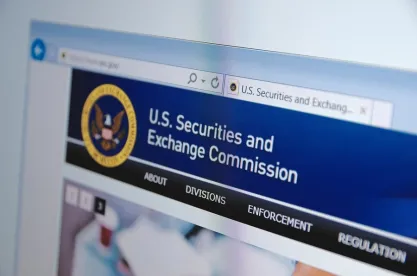Last week, the Securities and Exchange Commission announced that it had "instituted proceedings against American CryptoFed DAO LLC, a Wyoming-based organization, halting the effectiveness of the company’s registration of two digital tokens as securities". The SEC's order includes the following allegation:
The Form 10 also contained materially misleading information concerning American CryptoFed’s intended distribution of the Locke tokens. Specifically, American CryptoFed asserted that upon effectiveness of the Form 10, it will use Form S-8 – a Securities Act of 1933 (“Securities Act”) form for securities offered to employees through employee benefit plans – to distribute Locke tokens to more than 500 entities, such as municipalities, merchants, banks, and “crypto exchanges,” and non-employee individual contributors. However, the Form 10 failed to disclose that Form S-8 is not legally available for such a distribution. (Emphasis added)
This piqued my curiosity and so I checked the Form 10 at issue. This is what it states:
If the SEC does not agree with CryptoFed's position and characterizes Locke and Ducat tokens as securities, CryptoFed should be able to grant these tokens to service providers, free of charge, under an equity incentive plan for the CryptoFed community, pursuant to the American CryptoFed DAO Constitution ("Constitution") attached as Exhibit 1, as long as these tokens are restricted, untradeable and non- transferable. By holding Locke tokens per se, token holders by definition perform services to CryptoFed, because the CryptoFed token economy needs a network effect of mass token holders to overcome the inherent hurdles of collective action. CryptoFed will grant restricted, untradeable and non- transferable Locke tokens to municipalities, merchants, banks, crypto exchanges and individual contributors to execute the Ducat Economic Zone plan attached as Exhibit 2. In anticipation of mass distribution which will quickly surpass the 500-person threshold under Exchange Act Section 12(g)3, CryptoFed elects to proactively file this Form 10 to subject itself to the periodic reporting requirements and then file Form S-8 upon the effectiveness of Form 10 in 60 days. Concurrent with this Form 10 filing, CryptoFed is also filing Form S-1 to register Locke and Ducat tokens to make them tradeable and transferable. The SEC's review of CryptoFed's Form S-1 filing will continue until the SEC declares the Form S-1 effective. In the interim, Form S-8 filing will enable CryptoFed to grant restricted and untradeable Locke tokens to more than 500 persons. For clarity, all Locke and Ducat tokens will remain restricted, untradeable and non-transferable until the effectiveness of the Form S-1 filing is confirmed by the SEC.
While the SEC's allegation may be a reasonable interpretation of what was said in the Form 10, it subtly changes what is actually said in the Form 10. The Form 10 states only that the Form S-8 will enable the registrant to grant tokens to more than 500 persons. This statement is not facially wrong - a Form S-8 registration statement may register the offer and sale of securities to more than 500 persons in some circumstances. Indeed, before Congress amended Section 12(g) to increase the threshold from 500 holders of record for registration under the Exchange Act, more than a few companies were concerned that they would become subject to registration due to the number of awards under their employee benefit plans. The SEC obviously believes that this is not one of those circumstances.
A Form S-8 may not be used to register offers and sales to any entity, but it may be used to register sales to some persons (i.e., individual employees under an employee benefit plan). The SEC's order substitutes "entities" for "persons" and adds the list of potential recipients to the registrant's statement. By this legerdemain, the SEC converts a statement that might be true in some cases into a statement that is false in all cases. I am not arguing that the registrant could use a Form S-8 in the manner that the SEC believes the registrant intended. However, I believe that the SEC also has an obligation to be accurate in what it alleges and not manipulate the language in a filing to strengthen its case. When the SEC does so, it convicts itself of the very act that it accuses.



 />i
/>i
